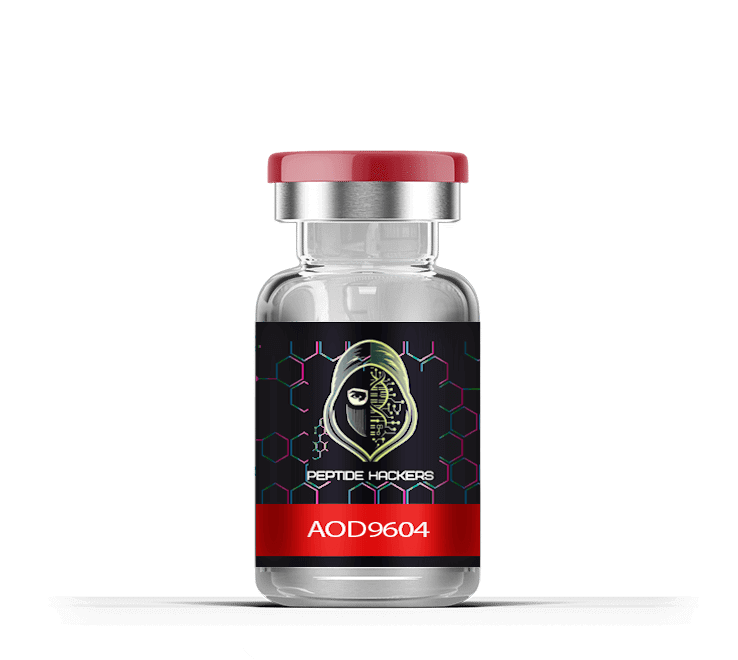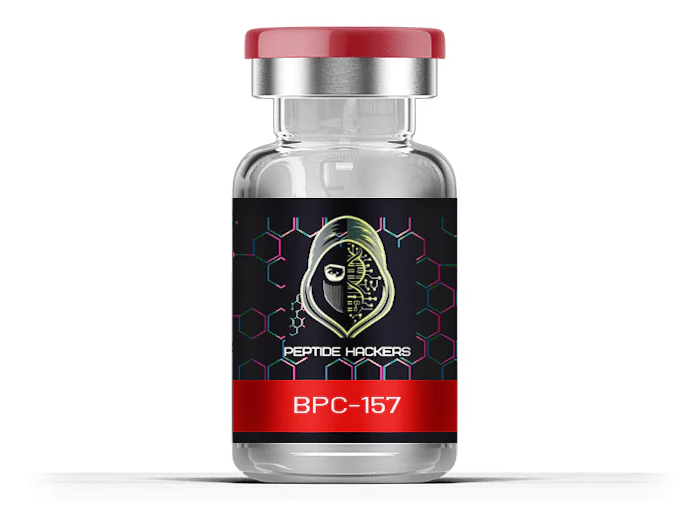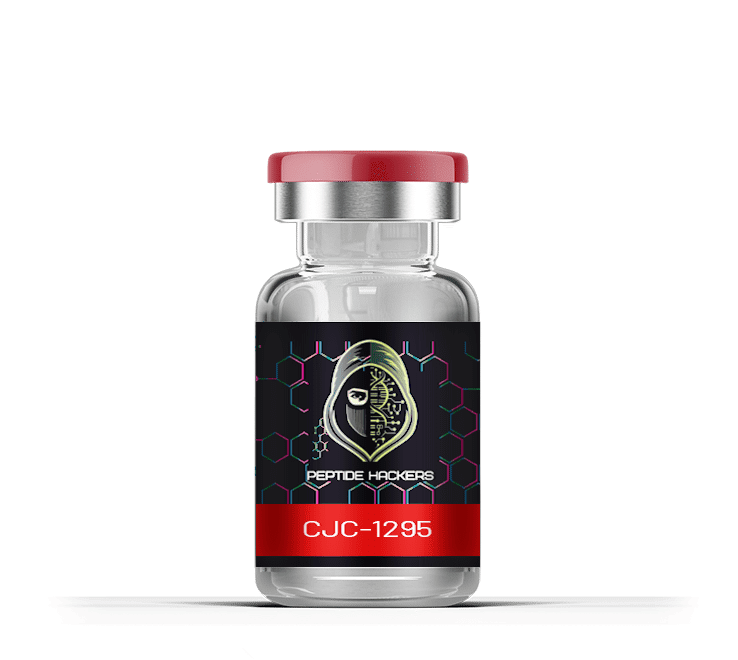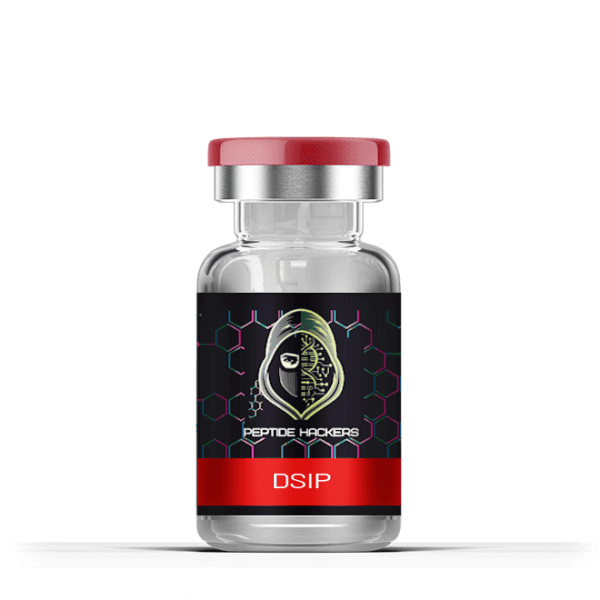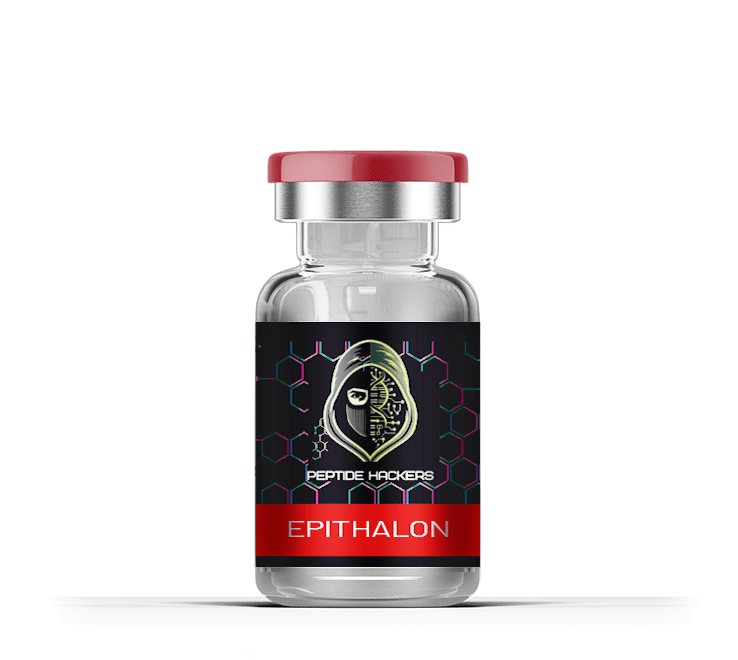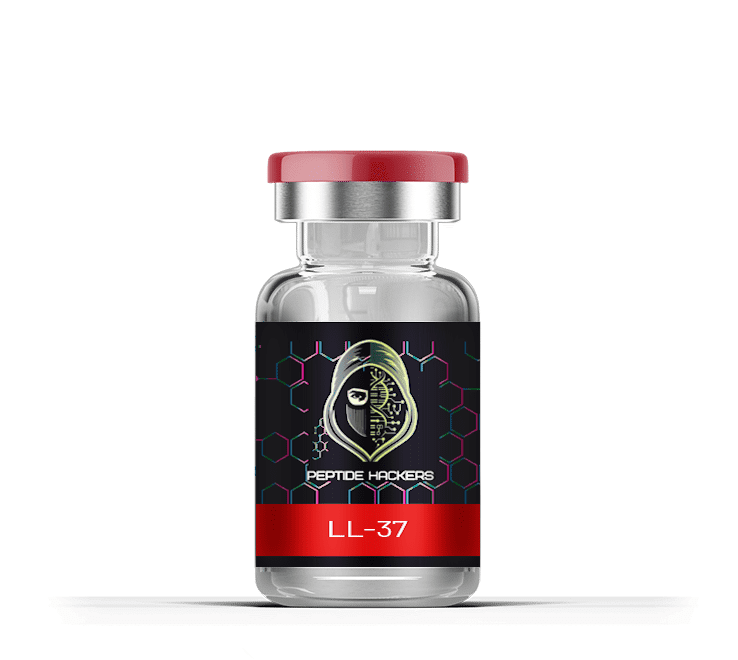Peptides banned by the FDA
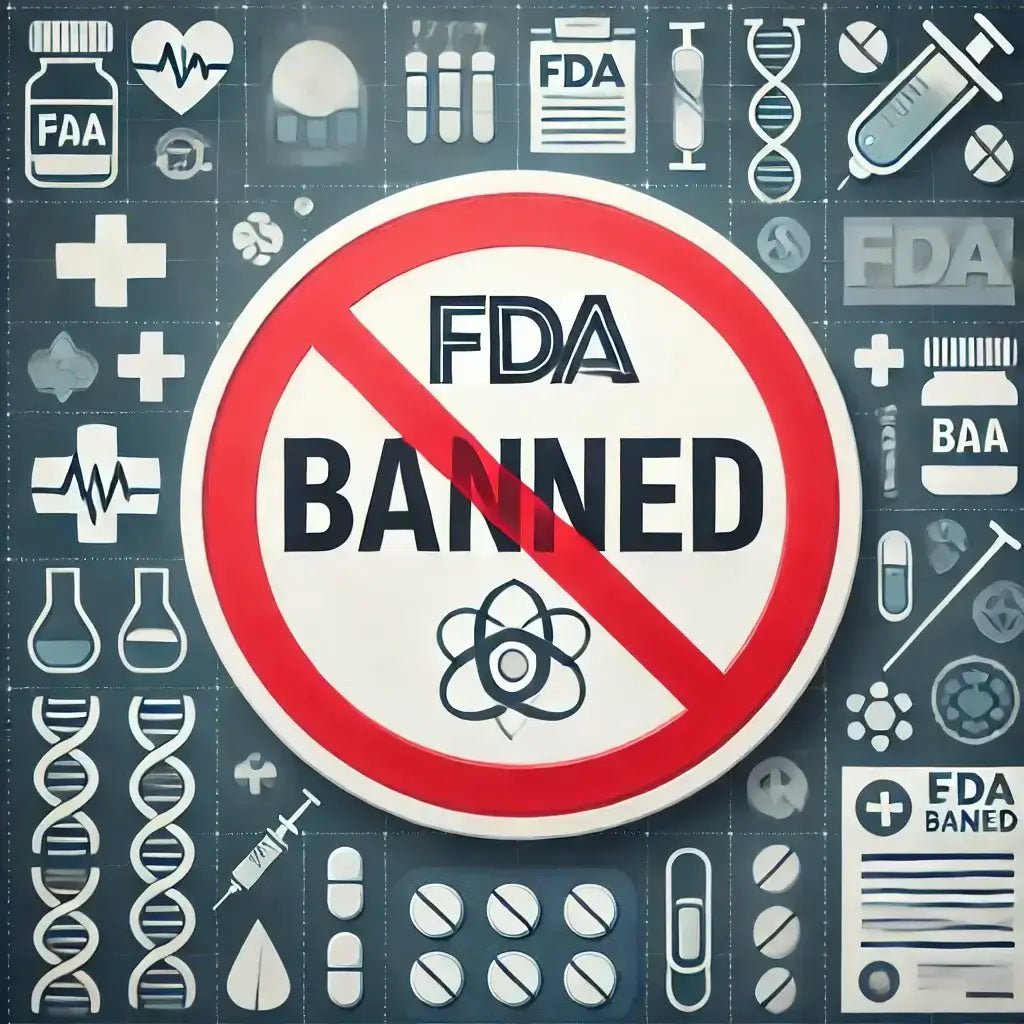
Peptides Banned By The FDA: What You Need to Know About the Recent Ban
The FDA recently banned 17 peptide treatments, citing safety concerns. But there's more to the story. The FDA, which regulates everything from dietary supplements to medical devices, plays a crucial role in protecting public health. However, many believe this ban might also be influenced by the pharmaceutical industry’s desire to protect their drug markets. Let’s explore which peptides were affected, why the FDA banned them, and what this means for you.
Quick Overview
The FDA has banned 17 peptides, including popular ones like BPC-157, CJC-1295, and Ipamorelin, citing safety concerns. The FDA's new guidance restricts compounding pharmacies from producing certain therapies. Some believe these bans are influenced by pharmaceutical companies protecting their markets. Patients currently using these peptides should consult their healthcare providers for alternatives.
Peptides Impacted by FDA Restrictions
AOD-9604
AOD-9604, a fragment of human growth hormone (HGH), is known for its potential in fat and weight loss, without the side effects of full HGH therapies. However, it was included in the FDA ban.
Why Was It Included in the FDA Ban?
The FDA claims that AOD-9604 may contain impurities and has limited safety data, leading to its ban. Critics argue it was banned because of its potential to replace expensive HGH therapies from pharmaceutical companies like Pfizer.
BPC-157
BPC-157 is renowned for its healing properties, particularly in gastrointestinal and musculoskeletal injuries. Despite its popularity, it has been banned by the FDA.
Why Was It Included in the FDA Ban?
The FDA banned BPC-157, citing a lack of sufficient human data and potential safety risks. BPC-157 is also known for its benefits to gut health. However, some believe that the peptide’s ability to replace painkillers and anti-inflammatory drugs—impacting companies like Purdue Pharma and Johnson & Johnson—played a role in its ban.
Expert Alternatives:
Consult your healthcare provider for safer alternatives that are not under FDA restrictions.
CJC-1295
CJC-1295 is a growth hormone-releasing hormone (GHRH) analog that stimulates growth hormone release. It’s popular for anti-aging and body recomposition but was banned by the FDA.
Why Was It Included in the FDA Ban?
The FDA included CJC-1295 in the ban due to significant safety risks, including concerns about long-term safety, immunogenicity, and potential harm. This peptide could replace more expensive hormone replacement therapies (HRT) from big pharma companies like Pfizer, influencing its ban.
Expert Alternatives:
Your healthcare provider might recommend other growth hormone secretagogues that are still legal and offer similar benefits.
DIHEXA
DIHEXA is known for its potential cognitive-enhancing effects. It has been used in research for improving brain function but is now banned by the FDA.
Why Was It Included in the FDA Ban?
The FDA banned DIHEXA due to concerns over safety and the lack of long-term studies in humans. Concerns include potential negative impacts on male fertility and possible tumorigenic properties. This peptide could challenge the market for traditional cognitive enhancers, leading to its exclusion.
Expert Alternatives:
Consider consulting your provider for other nootropics or cognitive enhancers that are still approved and effective.
DSIP (Delta Sleep-Inducing Peptide)
DSIP is known for its ability to improve sleep quality and reduce stress. Despite its benefits, it has been banned by the FDA.
Why Was It Included in the FDA Ban?
DSIP was banned due to concerns over its safety profile and insufficient human trials. The ban may also protect pharmaceutical sleep aids that dominate the market.
Epitalon
Epitalon has shown promise in extending telomeres, potentially increasing lifespan and promoting anti-aging effects. However, it’s now banned by the FDA.
Why Was It Included in the FDA Ban?
The FDA included Epitalon in the ban due to safety concerns and the lack of comprehensive human and animal studies. This ban may also benefit cosmetic giants like L’Oréal and Estee Lauder, who invest heavily in anti-aging products.
Peptides Banned by the FDA and Their Alternatives
Ipamorelin
Ipamorelin is a selective growth hormone secretagogue used for body recomposition and anti-aging. Despite its benefits, the FDA has banned it.
Why Was It Included in the FDA Ban?
Ipamorelin was banned due to concerns about its safety and potential misuse. This peptide could compete with growth hormone treatments offered by pharmaceutical giants like Pfizer.
KPV
KPV is known for its strong anti-inflammatory properties, making it a potential alternative to traditional anti-inflammatory drugs. It has also been banned by the FDA.
Why Was It Included in the FDA Ban?
The FDA banned KPV over safety concerns and the lack of extensive clinical trials. This decision may protect the market share of anti-inflammatory drugs from companies like Merck and Novartis.
LL-37
LL-37 is an antimicrobial peptide with potential applications in treating infections and cancer. Despite its promise, the FDA has banned it.
Why Was It Included in the FDA Ban?
The FDA cited potential risks, peptide-related impurities, and a lack of safety data as reasons for banning LL-37. The ban could benefit pharmaceutical companies that produce antibiotics and cancer treatments.
Why Did the FDA Ban Peptides? Safety Concerns Explained
The FDA claims that safety concerns are the primary reason for banning these peptides. Often cited reasons include limited safety data, potential impurities, and adverse effects. However, some believe that the influence of big pharmaceutical companies plays a significant role in these decisions, protecting their market share by eliminating competition from peptides.
[Reference: Safety Risks Associated with Certain Bulk Drug Substances - FDA]
Pharmaceutical Companies’ Influence on the FDA
Pharmaceutical companies, such as Pfizer, Johnson & Johnson, and Merck, contribute significant funds to the FDA, which can create conflicts of interest. These donations may influence regulatory decisions, favoring their products over safer, more effective alternatives like peptides.
- Pfizer: Donations may lead to favorable decisions for their products, such as vaccines, while peptides face bans.
- Johnson & Johnson: Their funding might influence regulatory conditions that protect their products over alternatives.
- Merck: Their funding may prioritize their vaccines and treatments over peptide therapies.
[Reference: Why Is Biopharma Paying 75% of the FDA's Drug Division Budget? - Forbes]
What If I'm Already Taking a Banned Peptide?
1. Talk to Your Provider About Alternatives
If you're currently taking a banned peptide, consult your healthcare provider. They can recommend safe and effective alternatives that are still legal and available.
2. Be Wary of Compounds from Unregulated Pharmacies
Be cautious about sourcing peptides from unregulated pharmacies or online sellers. These products may be unsafe, impure, or even counterfeit. Always consult with your provider and use reputable sources.
Summary
The FDA’s ban on peptides is seen by many as a way to protect big pharmaceutical companies' interests. By restricting access to potentially safer and more effective treatments, the FDA ensures that traditional drugs continue to dominate the market. This raises concerns about transparency, accountability, and the influence of money on public health decisions.
Disclaimer
This information is for educational purposes only. None of the products mentioned are FDA approved for human use. Peptide Hackers does not sell peptides for human or animal use.
Understanding why the FDA banned peptides can reveal how the pharmaceutical industry's influence might be affecting the availability of potentially better treatments. Always consult with healthcare professionals before making any decisions regarding your health.

